Stay ahead of the curve as a political insider with deep policy analysis, daily briefings and policy-shaping tools.
Request a DemoLawmakers consider sports betting, rogue prosecutors, opioid overdoses
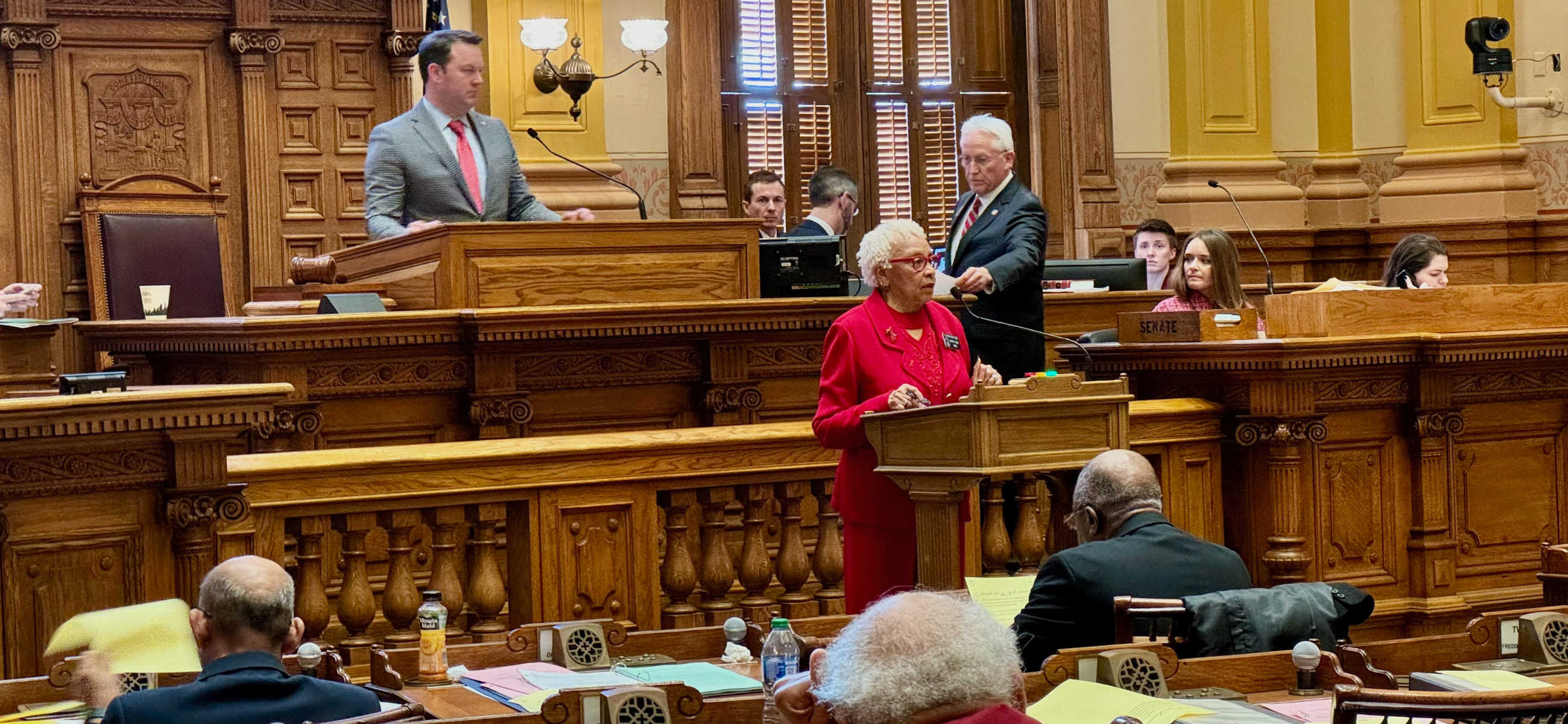
Sen. Gloria Butler speaks in support of the sports betting bill in the Senate on Feb. 1, 2024. (Credit: Jill Jordan Sieder)
The 2024 legislative session is in full swing, and bills are moving fast and furiously through committees and on the House and Senate floors.

One notable moment outside of bill debate this week: Influential House Rules Committee Chair Richard Smith, a Republican from Columbus, died on Tuesday from flu complications. While House and Senate members, who have paid tribute to him all week, attend his funeral service on Monday, floor sessions and committee meetings for both chambers have been canceled. Legislative business will resume Tuesday.
Here are some of the noteworthy actions in the General Assembly this week:
- Gov. Brian Kemp signed HB 30, which defines antisemitism in Georgia law. Kemp noted: “There has been a troubling rise in antisemitism” in the U.S. and Georgia in recent years involving “acts of hatred including harassment, intimidation and even violence.” The antisemitism law, the governor said, reaffirms the state’s commitment to being a place “where all people can live, learn and prosper in safety.”
- The Senate voted 35-15 to approve a bill to legalize sports betting. SB 386 would allow wagering in the form of online sports betting, online games and instant tickets but would still exclude betting on “actual races” involving horses or dogs at tracks.
Under the bill, sports betting operations and revenues would be regulated by the Georgia Lottery Corp., which would distribute profits to the Lottery for Education Account. Senators who spoke in favor of the bill estimated sports betting would produce an additional $100 million annually for pre-K education, HOPE college scholarships and need-based college aid programs.
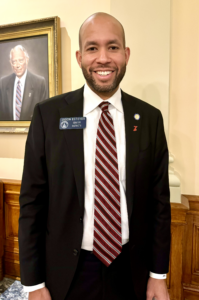
“We need to invest in early learning and ensure more children have the opportunity to pay for college,” said Sen. Jason Esteves, D-Atlanta, a co-sponsor. He said the bill requires the Lottery Corp. “to spend down some of its massive reserves … which will help to fund seats for roughly [3,000] pre-K students on waiting lists across the state.”
Sen. Brandon Beach, R-Alpharetta, noted that sports betting is already legal in 38 states and “is already happening here in Georgia. It’s not regulated, it’s easily accessible to minors, it lacks responsible gaming safeguards and it generates zero revenue for the state of Georgia. “
Sen. Ed Setzler, R-Acworth, said he opposed the bill and was “deeply troubled” by the fact that it would allow professional sports team players, coaches and other employees to have up to a 25% ownership interest in a sports betting licensee. “It’s not wise that the people competing on the field can own the gambling enterprise itself,” he said.
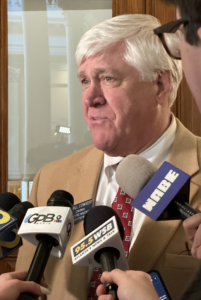
Sen. Bill Cowsert, R-Athens, said sports betting should be allowed only if Georgia voters approve it through a referendum to amend the state constitution. He warned the current bill would prompt court challenges that would bog the sports betting program down for years. His proposed amendment to require such a referendum passed, which means the bill will need a two-thirds vote in the Legislature, and then majority voter approval of the amendment, for sports betting to be legalized in Georgia.
SB 386 moves to the House for consideration next week.
- The House voted 95-75 to pass HB 881, which creates, once again, a Prosecuting Attorneys Qualifications Commission that would have the power to investigate, discipline and disqualify state prosecutors, including district attorneys. The bill is a workaround to create a new rulemaking process for how the commission investigates and reviews complaints after the Georgia Supreme Court last November declined to adopt rules for the commission, created by SB 92.
Bill sponsor Rep. Joseph Gullett, R-Dallas, said during the House floor debate that once the bill passes, “this commission will be able to do their real work, that is bringing accountability to those rogue prosecutors who abuse their office, sexually harass certain employees and do not show up to work.”
Rep. Matt Reeves, R-Duluth, said the commission will guard against district attorneys who “ignore entire categories of laws on the books.” Some Republicans have been critical of DAs in Georgia who have declined to prosecute low-level marijuana possession charges and other nonviolent misdemeanors.
Among Democrats opposing the bill, Rep. Tanya Miller, D-Atlanta, a former state and federal prosecutor, said the commission “lacks accountability, transparency and infringes on voting rights. … It usurps the will of Georgia’s voters by putting a politically motivated commission” made up of “non-elected partisan appointees” in charge of “overseeing duly elected prosecutors throughout our state.”
HB 881 now goes to the Senate for consideration.
- Among the latest election-related bills designed to boost voter confidence, HB 976 requires a visible watermark on paper ballots instead of the marks currently used on paper ballots that can be seen only with an infrared scanner. Co-sponsor Rep. John LaHood, R-Valdosta, said the one-time cost to implement the watermarking technology would be $110,000. The bill, supported by Secretary of State Brad Raffensperger, passed in the House 167-1.
- A bill that would allow universities and other organizations to distribute free medications that reverse opioid drug overdoses via vending machines passed unanimously in the House Public Health Committee.
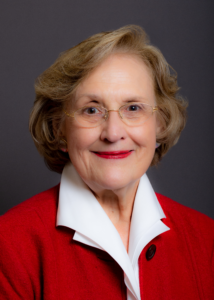
Committee chair Rep. Sharon Cooper, R-Marietta, said HB 1035 updates the existing medical amnesty law that allows pharmacists, first responders, harm reduction organizations, family members and friends of someone experiencing an opioid-related overdose to dispense and administer opioid antagonists such as Narcan without facing criminal or civil penalties.
Cooper said she was approached by Emory University, which has one Narcan vending machine at the medical school on its main campus and wants the legal go-ahead to distribute the machines more widely. Pharmacists and other practitioners need assurance they won’t lose their medical licenses for stocking the machines, she said. Selling or dispensing drugs via a vending machine is a misdemeanor under current law.
“Once we update this law, I think you’ll find vending machines on all our college campuses,” Cooper said.
According to the Georgia Department of Health, at least 2,000 Georgians died from opioid-related overdoses in 2021 and 2022, most of them from fentanyl.
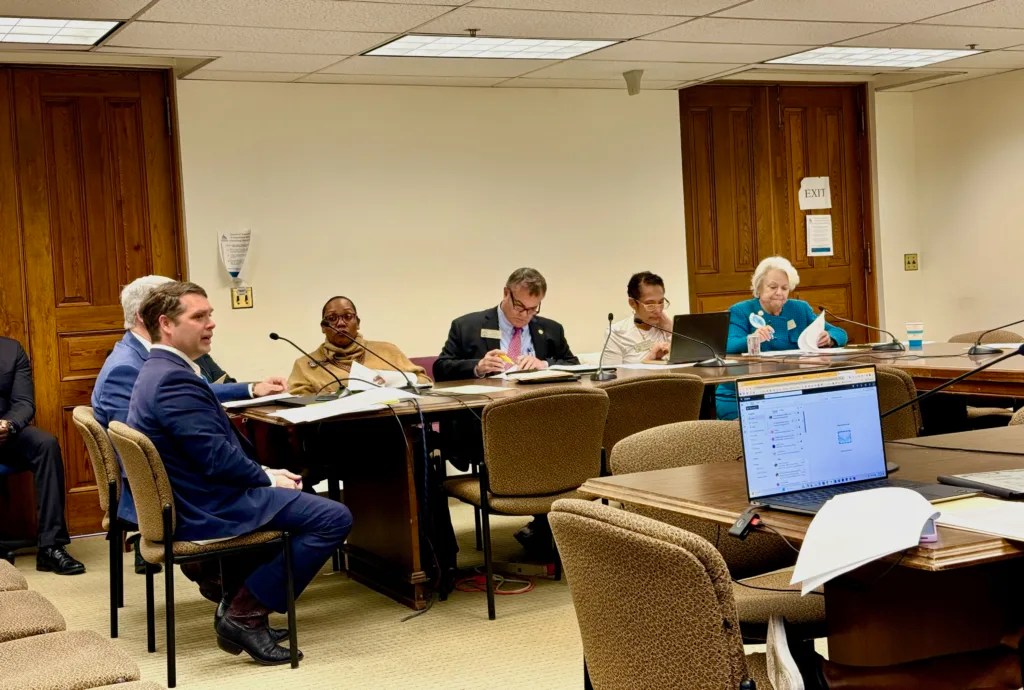
- The House Juvenile Justice Committee voted 5-4 to approve HB 873, which would create new juvenile treatment accountability courts to provide “alternative adjudication” to youth charged with delinquency or offenses or who need services due to truancy or running away from home.
Like adult accountability courts, the juvenile treatment courts would provide addiction and mental health treatment, with a goal of keeping kids in school and connected to their families instead of detention or incarceration. The program also aims to prevent and reduce gang involvement.
The bill, co-sponsored by Rep. Stan Gunter, R-Blairsville, a former superior court judge in the Enotah Judicial Circuit in Northeast Georgia, was written with the help of Judge Jeremy Clough, a family treatment court judge in that circuit. Clough told committee members the juvenile treatment courts would strive to “address the underlying issues” leading to juvenile delinquency before youth are charged and sentenced.
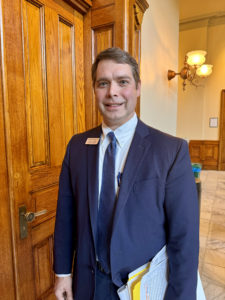
Afterward, Clough told State Affairs that his motivation to help the juvenile treatment court division is his belief in the impact of early intervention.
In his family treatment court, he said, “I see people with longstanding substance abuse problems. Typically, they may have started when they were 10, 12, 14 years old. And I see them 10, 15 years down the road when they’ve lost a lot of their life, when they have families they can’t support, when they have children they can’t care for, when they’ve made wreckage out of their relationships, and then we try to go and solve the problem after the fact. If we can provide those same solutions when someone is a juvenile, whether it be cognitive behavioral therapy or sobriety support or whatever it is that they need that’s going to help them to actually have a life and a future, that’s the goal.”
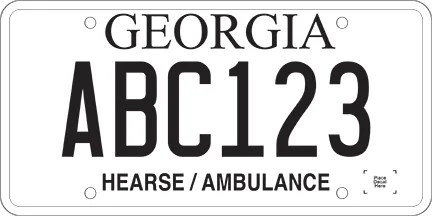
- The Senate unanimously passed SB 335, which adds adopted children to the definition of the crime of incest, which is currently defined as when “a person engages in sexual intercourse or sodomy … with a person whom he or she knows or is related to by blood or marriage.”
- The House Appropriations committee has been hard at work on the amended Fiscal Year 2024 budget over the past two weeks. The budget is expected to pass out of committee on Tuesday.
- HB 804 would create separate license plates for vehicles used as ambulances or hearses. Currently such vehicles have tags that say “Hearse/Ambulance,” which lawmakers said is disconcerting for some of the live humans who ride in ambulances. The bill passed 157-0 in the House and awaits action in the Senate transportation committee.
Read these related stories:
Have questions, comments or tips? Contact Jill Jordan Sieder on X @journalistajill or at [email protected].
And subscribe to State Affairs so you do not miss an update.
X @STATEAFFAIRSGA
Facebook @STATEAFFAIRSGA
Instagram @STATEAFFAIRSGA
LinkedIn @STATEAFFAIRS
Professionals still face licensing delays amid state’s transition to online system
The Gist Georgia’s professionals and business owners are still struggling to obtain professional licenses in a timely manner. As the Secretary of State’s Office rolls out its new Georgia Online Application Licensing System to expedite the process, the efficiency of this new process is being put to the test. What’s Happening Thursday morning at the …
Controversy over AP African American Studies class grows
Rashad Brown has been teaching Advanced Placement African American Studies at Atlanta’s Maynard Jackson High School for three years. He’ll continue to do so — even though the state’s top education official removed it from the list of state-funded course offerings for the upcoming school year. While Brown prepares to start teaching his class on …
Students, teachers, lawmakers blast decision to end AP African American history classes
ATLANTA — A coalition of lawmakers, civil rights leaders, clergy, educators and students Wednesday called on the state’s education czar to rescind his decision to drop an advanced placement African American studies class from the state’s curriculum for the upcoming school year. “This decision is the latest attack in a long-running GOP assault on Georgia’s …
Kamala Harris’ presidential bid reinvigorates Georgia Democrats
Georgia Democrats have gained new momentum heading into the November election, propelled by President Joe Biden’s decision to bow out of his reelection bid and hand the reins to Vice President Kamala Harris. The historic decision, announced Sunday, is expected to prove pivotal in the national and state political arenas and breathe new life and …




